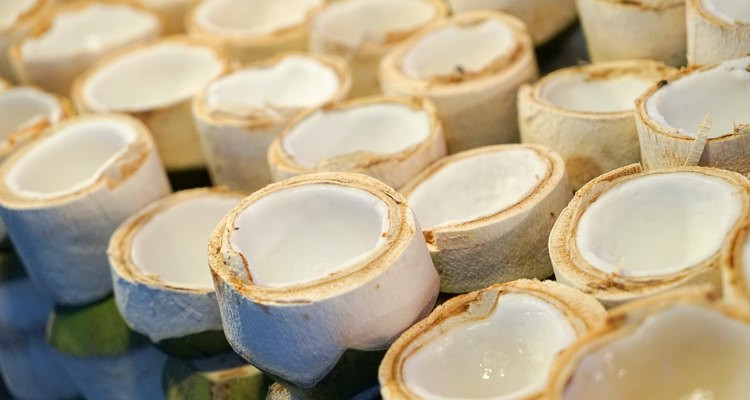
junce/iStock/Getty Images
Coconut milk is created in a fashion similar to tea by steeping the fruit’s grated meat and rigorously straining. The remaining coconut is squeezed until dry, eventually creating coconut milk with a frothy cream that floats to the surface once cooled. By removing all the water from the remaining coconut, powdered coconut milk is created. According to the U.S. Dairy Export Council, the milk retains every health benefit it had before, minus its water-soluble vitamins. Try adding powdered coconut milk to your next recipe to fully reap the following health benefits.
Oxygen Support
The high amount of iron found in coconut milk powder aids in DNA synthesis and transportation of electrons to the cells of mitochondria and oxygen to organs via hemoglobin, the primary protein in red blood cells. According to the Linus Pauling Institute, hemoglobin represents roughly two-thirds of the body’s iron. Hemoglobin’s main role of transporting oxygen taken from the lungs to the rest of the body is crucial in preventing heart irregularities, muscle fatigue and anemia.
Antimicrobial
Research conducted at the University College Hospital in Nigeria recently studied the efficacy of coconut in treating various species of Candida. The results indicated that the Candida strains were more susceptible to the anti-fungal agents of the 100-percent concentrated coconut oil than pharmaceutical drug treatments. According to the research of biochemist Mary Enig, these results are reflective of the work of medium-chain fatty acids found in the coconut that deactivate bacteria, fungi and yeast microorganisms.
Disease Fighting
According to Enig’s research, 50 percent of the unique saturated fatty acids found in coconuts are called lauric acids, the precursors of the disease-fighting substance monolaurin. The disease-fighting actions of lauric acid and monolaurin work together by breaking down the lipid coat and envelope surrounding such viruses as herpes, influenza, measles and HIV. The monolaurin in coconuts has also been found by researchers to interfere with DNA transference of bacteria, virus assembly and maturation.
Related Articles

What Vitamins Help the Liver?

Collagen & Rosacea

The Best Vitamins for Sinuses

Does Milk Thistle Help Skin?
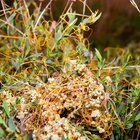
Traditional Uses of Cuscuta

Skin Care Products That Contain ...
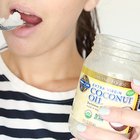
Skin Benefits of Eating Coconut Oil

What Are the Benefits of Ashwagandha in ...

Elastin Supplements

What Are the Benefits of BioSil?
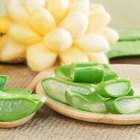
What Is Aloe Good For?

Ingredients in Maybelline Foundation
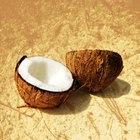
What Does Coconut Acid Do in Soap?

Benefits of Shea Butter and Coconut Oil ...

How to Make Grapefruit Seed Extract

Cappuccino Nutrition Information

What Are the Ingredients in Proactiv?

List of Retinoids

L-Lysine for Hair Growth

Uses of Peptides
References
Writer Bio
Based near America's "Gateway to the West," Li St. Michael has been writing professionally since 2005. Her culturally minded articles have appeared on various websites. St. Michael holds a Bachelor of Science in writing from Drury University and is set to receive a Masters degree in international relations in 2011.
Photo Credits
junce/iStock/Getty Images